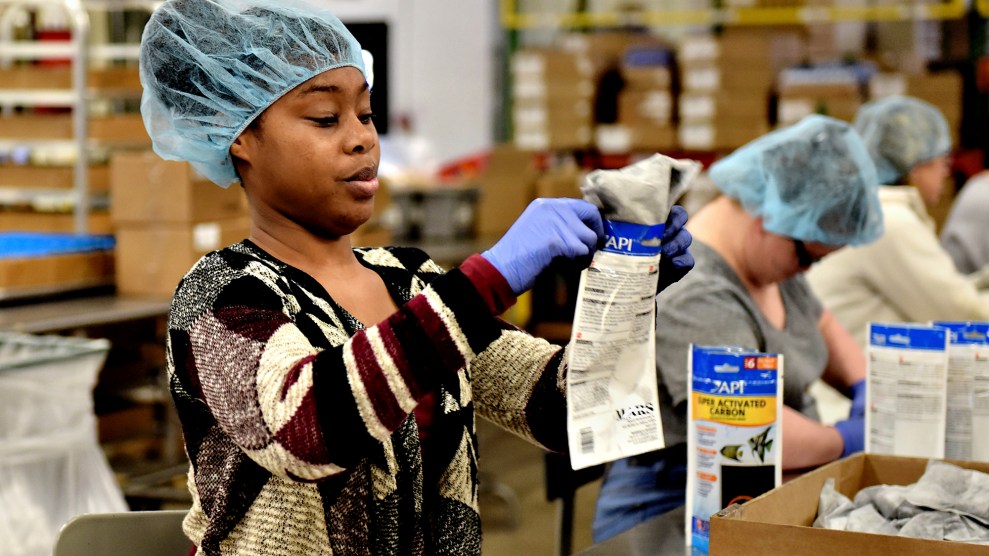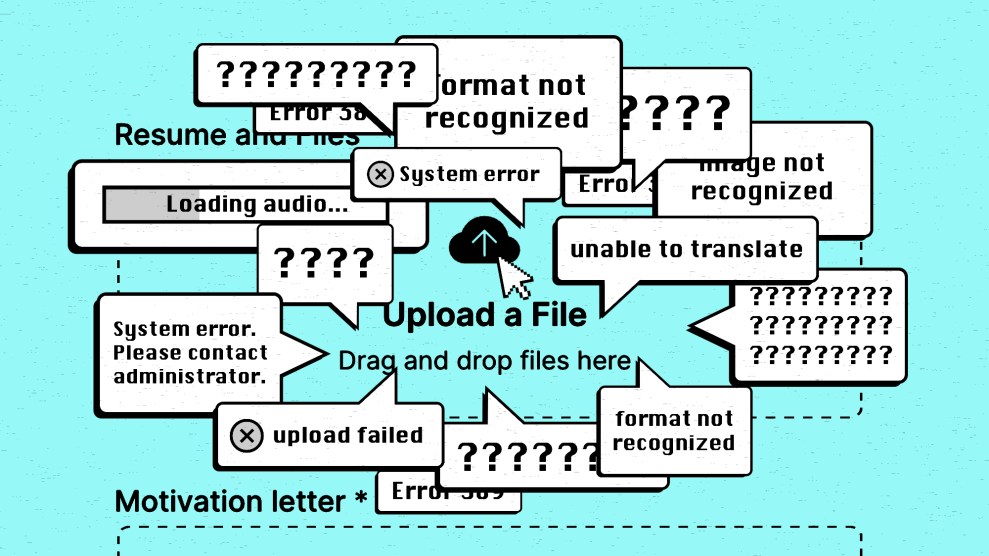
Mother Jones illustration; Courtesy Madeline Ryan Smith
If not for her partner driving her, Madeline Ryan Smith isn’t sure how she’d be able to campaign across the four counties she hopes to represent in Georgia’s state House. Smith is blind: “Getting from Point A to Point B physically” is the biggest hurdle she faces on the campaign trail.
“I think it is problematic and kind of disheartening that disabled candidates have to rely so heavily on able-bodied people around them,” Smith said. “We talk a lot of big game about public transportation, and then we choose not to implement it anywhere except for metropolitan cities.”
Smith, 27 years old, is the Democratic nominee for her district; the Republican incumbent she’s running against (himself a Democrat until the mid-aughts) has been in office since 1985, before she was born. Her experience living with a disability has influenced her policy views, including support for expanding Medicaid and getting rid of Georgia’s subminimum wage for disabled workers.
Many candidates claim to support disabled people; Smith wants them to “prove it.”
Although disabled people make up the largest minority group in the country, there are disproportionately few openly disabled politicians relative to the approximately 42.5 million American adults with disabilities. There are several reasons: disabled people can lose Social Security benefits while running for office; some politicians—like FDR throughout his 12 years in the White House—hide their disabilities due to ableism; for people with some health conditions, the long hours aren’t feasible.
In January 2023, Smith was elected as Georgia Democratic Party’s Disability Caucus Chair, where she’s already been met with disappointment by the state Democratic Party’s decision to leave disability policy out of its platform this year.
Politicians, Smith says, need to start proving that they actually care about disabled constituents. “When anyone inside the Democratic Party who’s running for office comes to me and says, ‘Oh yeah, I’m so supportive of people with disabilities,’” she notes, “I say, ‘Okay, prove it.’” Many of those candidates, Smith says, don’t provide standard accommodations like alternative text on social media posts for people with low vision—including her—or American Sign Language interpreters at events.
Smith says they need to take the initiative. “It’s in the ADA, so I don’t need to be teaching anyone how to do that,” Smith says. The Americans with Disabilities Act—which many disabled people still have to fight to get institutions (and the people who run them) to follow—was signed into law in 1990, again before Smith was even born.
At political events not run by disabled people, Smith has “never seen anyone stand up to make a speech and describe themselves visually”—the type of visual description that Republicans attacked Vice President Kamala Harris for using in a meeting with disability activists.
“The reason people are making fun of Kamala Harris as she accommodates the audience she is speaking to is twofold: ignorance and ableism,” Smith adds. “There’s no other explanation.”
Constantly facing inaccessibility has led Smith to make her campaign as accessible as possible both to the people working on it and to her constituents.
“Events are accessible. They’re safe. They’re masked. We have hand sanitizer,” she says. “ We do the whole nine yards because…a lot of my campaign staff is disabled anyway.” Smith says it’s a priority for her team to “proactively think about accessibility” rather than as an afterthought.
And she hopes that seeing more disabled people run for office—through campaigns like hers—will have a positive impact on other people with disabilities and inspire them to do the same. “It is so important, so vitally important,” Smith said, for disabled youth to “see people with disabilities in positions of power.”

















